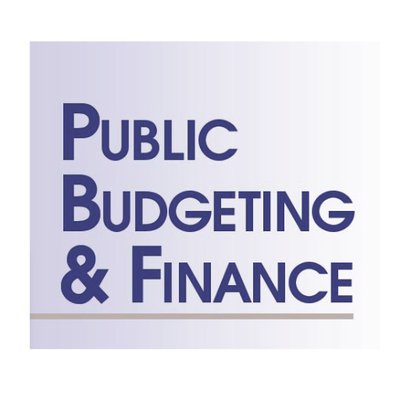In this post, I wanted to share that the School of Government’s Knapp Library has a new collection for North Carolina’s assessment community. This is a short post because I anticipate most of the reading will occur as you explore the links in this post. In January, IAAO announced the availability of their new collection of informational books on assessment, Apendium.
Category: Tax Policy (page 2 of 5)
Introduction by Kirk Boone
Maybe the assessment stars were aligned two weeks ago when PTEP held IAAO 300, Fundamentals of Mass Appraisal, in Rocky Mount, NC.
- On August 20, the first day of class, WRAL, our local NBC affiliate, published an article about leading edge statistics software used to support Wake County mass appraisal. Marcus Kinrade, AAS, Wake County Revenue Director, shared the following article with me.
- WRAL is a pioneer in technology. In 1996, WRAL provided the first public high definition television broadcast in the United States. In 2016, they became the first US station to broadcast a full time service using standards for 4K ultra HD content.
- SAS Institute, the company providing the statistical technology, is leading-edge. The world’s largest privately held software company, right here in Wake County, is used by Google as a model for some of their own workplace development.
- Mr. Kinrade was attending IAAO 300 that week. The course introduces statistical techniques used in mass appraisal. Although IAAO 300 topics such as clustering and regression analysis have been in use for hundreds of years, it is the same mathematics combined with today’s technology and local government leadership that allow for what you’re about to read. This is an impressive collaboration between a leading-edge company and a leading-edge county.
In the wake of the Wayfair ruling and our changes happening in North Carolina I am excited to share a virtual issue of Public Budgeting & Finance that I edited. It compiles articles published in the journal and presents questions and concerns regarding the future of sales tax policy. It also makes access to the articles open (i.e., FREE!) for the next six months. So please take a look, there are a mix of studies that examine state and local issues.
Also, in addition to editing the virtual issue, I will be moderating a virtual roundtable next Thursday (Sept 6th) on the topic. Please tune in! The presenters are: Donald Bruce from the University of Tennessee, Cynthia Rogers from the University of Oklahoma, and Barry Boardman is the Chief Economist for the NC General Assembly. The presenters are very knowledgeable and experts on different aspects of sales taxes and are sure to share important insights, suggestions, and considerations. See the flier for the event!
It wasn’t always called the NC Candidates’ Club. There was no need to designate it as the “NC” club because we were the only such club in the nation. The club started in 1984 at what was then called the “Institute of Government”, so it was first named the Institute of Government’s Candidates’ Club. Just one year earlier, a young appraiser who started his career in Tennessee began lecturing at UNC’s Institute of Government. His name was Joe Hunt and is now known by many as one who advanced the science and art of property tax assessment in North Carolina.

Joe Hunt, CAE
How might a citizen advisory committee aid in the reappraisal process? In the SOG publication, “Creating and Maintaining Effective Local Government Citizen Advisory Committees, Upshaw, 2010″, here is the introductory reason to have CACs:
When communities face complex issues affecting large, diverse groups, citizen engagement leads to people being better informed, better able to collaborate with others, and more active in addressing issues that affect them. By sharing responsibility, local officials increase opportunities for citizens to contribute to the common good.
A question was asked earlier this week about a company’s records that do not agree with previous listings. I think an important question to ask in these situations is whether either resource (the records or the listing) match what really exists. This brings up a few good business personal property topics to review. Do you believe in Ghosts? Don’t be scared.

A county mapper recently contacted me with a question and not surprisingly I had to learn the answer myself to provide an answer. I am not a mapper nor have I had the opportunity to work closely with mappers, so if you can add to this discussion, please do so below through “Leave a Reply”. While searching for the answer, some documents were revealed that I think will be helpful to others.
The issue involved a county that assesses land based on deeded acres, which may include road right of way. The question was whether there is guidance to help establish a county policy identifying assessment best practice regarding situations where deeded acreage may include road right of way or when deeded acreage varies from calculated acreage. The answer is, yes.
This post shares some information coming from the recent announcement of USPAP availability online. It’s also a reminder of how to join PTAX, and where to find the latest PTEP calendar. If you have questions or comments about any of these, please click “Leave a Reply” at the bottom of this post.
In November 2017, the Governmental Accounting Standards Board (GASB) issued an Exposure Draft entitled Accounting for Interest Cost during the Period of Construction. The GASB is proposing a standard that would significantly change the way certain interest costs are accounted for during the period of construction of capital assets. And (for once) for the better! If approved in its current form (and I do not anticipate any real challenges to this proposal), governmental entities would simply recognize interest as an expense or an expenditure in the period it’s incurred, whether or not it is during the construction period. As such, there would be no further interest capitalization to calculate and report.
KISS is only one acronym or abbreviation for the minimalist approach I’m referring to in this post. Another popular way to put it is “less is more”. Maybe my favorite is “simplicity is the ultimate sophistication”.
© 2024 Copyright,
The University of North
Carolina at Chapel Hill.
Theme by Anders Noren — Up ↑


